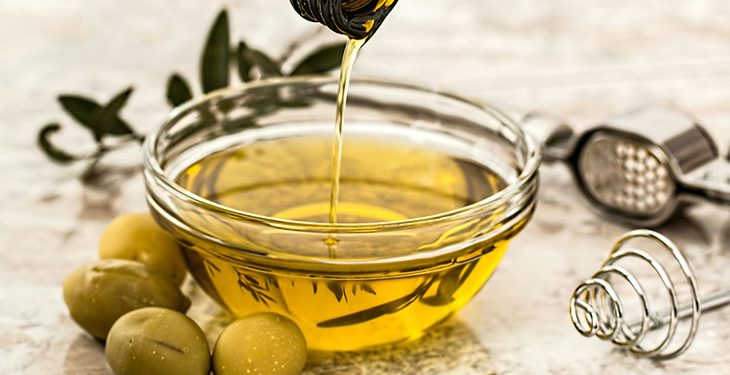Olive oil, a staple of Mediterranean cuisine, has been revered for centuries not only for its rich flavor but also for its numerous health benefits. Extracted from the fruit of the olive tree (Olea europaea), this oil has a long history that dates back to ancient civilizations, where it was used for cooking, religious rituals, and even as a form of currency. The process of making olive oil involves pressing whole olives to extract the oil, which can then be refined or left in its natural state.
Extra virgin olive oil, the highest quality available, is produced from the first cold pressing of olives and is characterized by its low acidity and rich flavor profile. The popularity of olive oil has surged in recent years, particularly as more people become aware of its health benefits and culinary versatility. It is not only a key ingredient in salad dressings and marinades but also serves as a flavorful base for sautéing vegetables and drizzling over finished dishes.
The unique composition of olive oil, particularly its high levels of monounsaturated fats and antioxidants, has made it a focal point in discussions about healthy eating. As dietary patterns shift towards more plant-based options, olive oil stands out as a beneficial fat that can enhance both flavor and nutrition.
Key Takeaways
- Olive oil is a key component of the Mediterranean diet and has been used for centuries for its health benefits.
- Consuming olive oil can help reduce the risk of chronic diseases such as cancer and diabetes.
- Olive oil can improve heart health by reducing inflammation and lowering the risk of heart disease.
- Including olive oil in a balanced diet can aid in weight management and promote a healthy body weight.
- The consumption of olive oil may have a positive impact on brain health and cognitive function.
Health Benefits of Olive Oil
Antioxidant Properties
Olive oil is also rich in antioxidants, such as vitamin E and polyphenols, which play a crucial role in combating oxidative stress in the body. These compounds help protect cells from damage caused by free radicals, potentially lowering the risk of various diseases.
Reducing Chronic Diseases
Research has shown that incorporating olive oil into one’s diet can lead to improved overall health outcomes. For instance, studies have indicated that individuals who consume olive oil regularly tend to have lower rates of chronic diseases such as heart disease and diabetes.
The Mediterranean Diet
The Mediterranean diet, which emphasizes the use of olive oil along with fruits, vegetables, whole grains, and lean proteins, has been associated with longevity and reduced incidence of age-related illnesses. This dietary pattern highlights the importance of not just individual foods but also the synergy created by combining them in a balanced way.
Effects on Heart Health
Heart health is one of the most prominent areas where olive oil demonstrates its benefits. The consumption of olive oil has been linked to a reduced risk of cardiovascular diseases, including heart attacks and strokes. The monounsaturated fats found in olive oil help to lower levels of low-density lipoprotein (LDL) cholesterol, often referred to as “bad” cholesterol, while simultaneously raising levels of high-density lipoprotein (HDL) cholesterol, or “good” cholesterol.
This favorable lipid profile is crucial for maintaining healthy blood vessels and reducing arterial plaque buildup. Moreover, the anti-inflammatory properties of olive oil contribute significantly to heart health. Chronic inflammation is a key factor in the development of heart disease, and the polyphenols present in extra virgin olive oil have been shown to reduce markers of inflammation in the body.
For example, studies have indicated that regular consumption of olive oil can lower levels of C-reactive protein (CRP), a marker associated with inflammation and cardiovascular risk. By mitigating inflammation and improving lipid profiles, olive oil serves as a powerful ally in promoting cardiovascular wellness.
Impact on Weight Management
In addition to its heart-healthy properties, olive oil can play a role in weight management. Contrary to the misconception that all fats contribute to weight gain, healthy fats like those found in olive oil can actually support weight loss efforts when consumed in moderation. The monounsaturated fats in olive oil can promote satiety, helping individuals feel fuller for longer periods.
This can lead to reduced overall calorie intake and assist in maintaining a healthy weight. Furthermore, incorporating olive oil into meals can enhance the absorption of fat-soluble vitamins such as A, D, E, and K. This means that when olive oil is used in conjunction with nutrient-dense foods like leafy greens or colorful vegetables, it not only adds flavor but also boosts the nutritional value of the meal.
Studies have shown that individuals following a Mediterranean diet rich in olive oil tend to have better weight management outcomes compared to those on low-fat diets. This suggests that embracing healthy fats can be an effective strategy for achieving and maintaining a healthy weight.
Potential for Lowering Risk of Chronic Diseases
The potential for olive oil to lower the risk of chronic diseases extends beyond heart health. Research indicates that regular consumption of olive oil may be associated with a reduced risk of conditions such as type 2 diabetes and certain types of cancer. The anti-inflammatory and antioxidant properties inherent in olive oil contribute to its protective effects against these diseases.
For instance, studies have shown that individuals who consume higher amounts of olive oil have a lower incidence of type 2 diabetes compared to those who consume less. In terms of cancer prevention, some studies suggest that the polyphenols found in olive oil may inhibit the growth of cancer cells and reduce oxidative stress that can lead to tumor development. The Mediterranean diet’s emphasis on whole foods, including fruits, vegetables, nuts, and legumes alongside olive oil, creates an environment conducive to overall health and disease prevention.
This holistic approach underscores the importance of dietary patterns rather than isolated nutrients when considering long-term health outcomes.
Influence on Brain Health
Emerging research has begun to explore the influence of olive oil on brain health and cognitive function. The brain is particularly susceptible to oxidative stress and inflammation, both of which are implicated in neurodegenerative diseases such as Alzheimer’s and Parkinson’s disease. The antioxidants found in extra virgin olive oil may help protect brain cells from damage and support cognitive function as we age.
One study published in the journal “Frontiers in Aging Neuroscience” found that participants who consumed a Mediterranean diet rich in extra virgin olive oil exhibited better cognitive performance compared to those who followed a standard diet. The study suggested that the polyphenols in olive oil could enhance synaptic plasticity and improve memory function. Additionally, oleic acid has been shown to promote the production of brain-derived neurotrophic factor (BDNF), a protein essential for neuron growth and survival.
This connection between dietary fat intake and brain health highlights the importance of incorporating high-quality fats like olive oil into daily meals.
Role in Digestive Health
Olive oil also plays a significant role in promoting digestive health. Its consumption has been linked to improved gut function and may help prevent gastrointestinal disorders such as constipation and inflammatory bowel disease (IBD). The healthy fats present in olive oil can aid in the absorption of nutrients while also promoting regular bowel movements by lubricating the digestive tract.
Moreover, some studies suggest that olive oil may have prebiotic effects, supporting the growth of beneficial gut bacteria. A healthy gut microbiome is essential for overall health, influencing everything from digestion to immune function. By fostering a balanced gut environment, olive oil contributes not only to digestive health but also to systemic well-being.
The inclusion of olive oil in meals can enhance flavor while simultaneously supporting gut health through its unique composition.
Conclusion and Recommendations
Incorporating olive oil into your diet can yield numerous health benefits ranging from improved heart health to enhanced cognitive function and digestive wellness. To maximize these benefits, it is advisable to choose high-quality extra virgin olive oil, which retains more nutrients and antioxidants compared to refined varieties. When using olive oil for cooking or dressing salads, consider pairing it with other nutrient-dense foods such as vegetables, whole grains, and lean proteins to create balanced meals.
For those looking to adopt a healthier lifestyle or improve their dietary habits, embracing the Mediterranean diet can be an effective strategy. This diet emphasizes whole foods while incorporating healthy fats like olive oil as a primary source of dietary fat. By making conscious choices about food sources and cooking methods, individuals can harness the power of olive oil to support their overall health and well-being.
If you’re looking to boost your health and wellness routine, you may want to check out this article on Top 10 Nutrient-Rich Recipes for a Stronger Body. This article provides wholesome meal ideas to help you achieve a stronger and healthier body. Pairing these nutritious recipes with the benefits of consuming 2 tablespoons of olive oil a day could be a powerful combination for improving your overall well-being.
FAQs
What are the potential health benefits of consuming 2 tablespoons of olive oil a day?
Consuming 2 tablespoons of olive oil a day has been associated with potential health benefits such as improved heart health, reduced risk of chronic diseases, and better weight management.
How does olive oil benefit heart health?
Olive oil is rich in monounsaturated fats, which have been shown to help lower LDL cholesterol levels and reduce the risk of heart disease. It also contains antioxidants that can help reduce inflammation and improve blood vessel function.
Can consuming olive oil help with weight management?
Some studies suggest that consuming olive oil as part of a healthy diet may help with weight management. The monounsaturated fats in olive oil can help increase feelings of fullness and reduce overall calorie intake.
Are there any potential risks or drawbacks to consuming 2 tablespoons of olive oil a day?
While olive oil is generally considered to be a healthy fat, it is still high in calories and should be consumed in moderation. Excessive consumption of olive oil can lead to weight gain and other health issues.
How should olive oil be incorporated into a daily diet?
Olive oil can be used in cooking, salad dressings, and as a condiment for bread. It is important to choose extra virgin olive oil, as it is the least processed and retains the highest levels of antioxidants and beneficial compounds.












